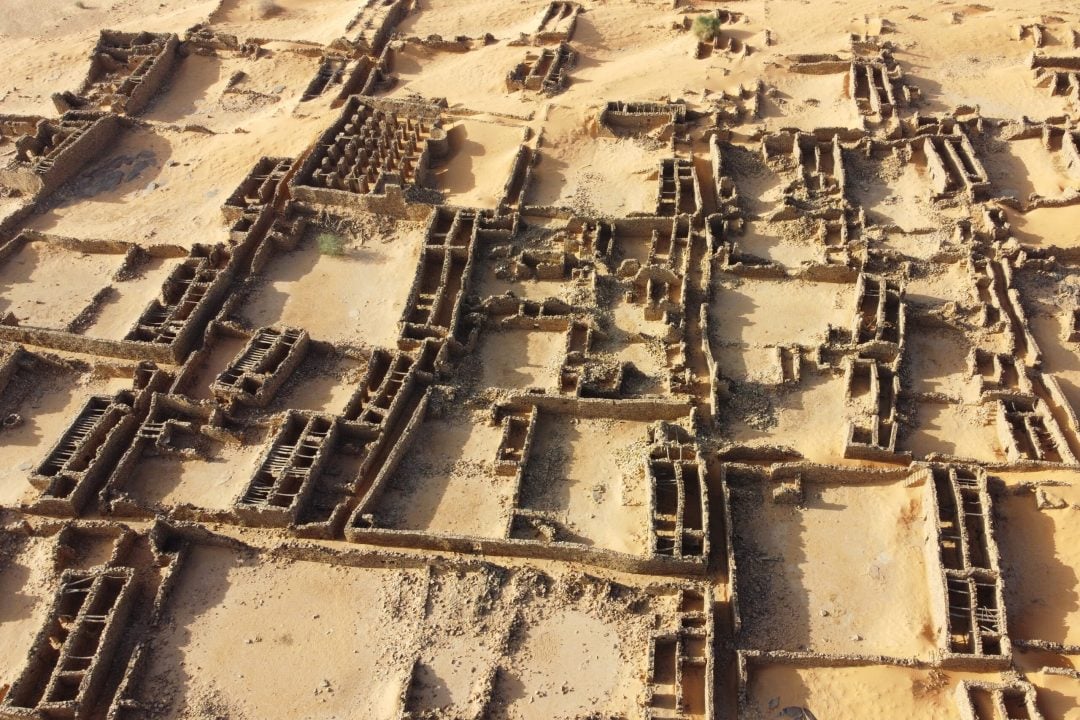KSAR EL BARKA, THE ABANDONED TOWN IN THE SAHARA
Ksar El Barka is an historic town located in the commune of Tamourt N’ Naaj (formerly commune of Nbeïka), 60 km NNE of the capital, Moudjeria.
It is an archaeological site where there are many vestiges of a fortified village weakened by the effects of time and the looting of men.
Its architecture is particular and characteristic of the region with its thick stone walls plastered with clay (banco) with triangular or partitioned niches.
Ksar el Barka was created by the Kunta from Wadan in 1690. Its foundation would, in this case, be posterior, on the one hand to the invasion of Tagant by the Mâquil Arabs in the 16th century, on the other hand to the disappearance of the empires of Niger at the end of the same century (1591: conquest of Songhaï by the sultan of Morocco).
Its founder, Imam Taleb Sid’Ahmed Ben Bajed, did not belong to the first Kunta generations who came to Tagant because the tomb of his father Bajed, that of his grandfather, Sidelemin and even that of his great-grandfather, Sidi Haiballah, are all in Tagant. The latter is in Legbour, 24 km west of Tidjikja, but the first settlement project of the Kunta in Tagant was undoubtedly that of Ksar El Barka.
COORDINATES 18°24’11” N 12°13’23” W
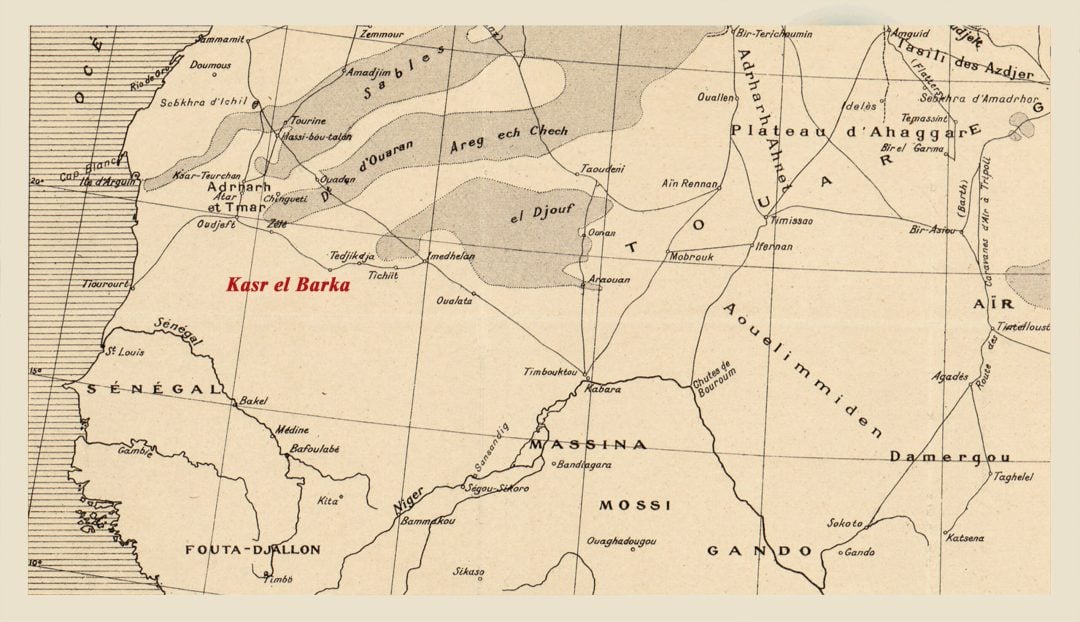
Men of the Kunta tribe have long lived in the Tidjikja area as nomads and traders. Originally the Kunta family came from the area around Akka in Morocco, spread south, founded the cities of Oudane, Tichit and then Ksar el Barka.
The city quickly developed into an important trading and transshipment center. Here the caravans from Timbuktu, Guinea, Ghana and Senegal arrived. Likewise the large caravans from Morocco.
With the growing prosperity and wealth, Ksar el Barka also developed into a cultural center. Numerous poets and scholars have written their works here and spread and influenced culture and knowledge throughout West Africa via trade routes. This becomes particularly evident in the spread of Islam, the interpretation of which in West Africa still corresponds to the teachings of Ksar El Barka. In 1753, during a visit by the great Sheikh Sidel Moctar El Kounti, Ksar el Barka was declared a holy city.
But things weren’t so holy in the city. Tribal wars and subsequent invasions led to the repeated destruction of the city starting in 1822, and each time the city was rebuilt soon after being destroyed by its residents until it was finally destroyed in 1893. In February 1905, French colonial troops occupied Ksar El Barka.
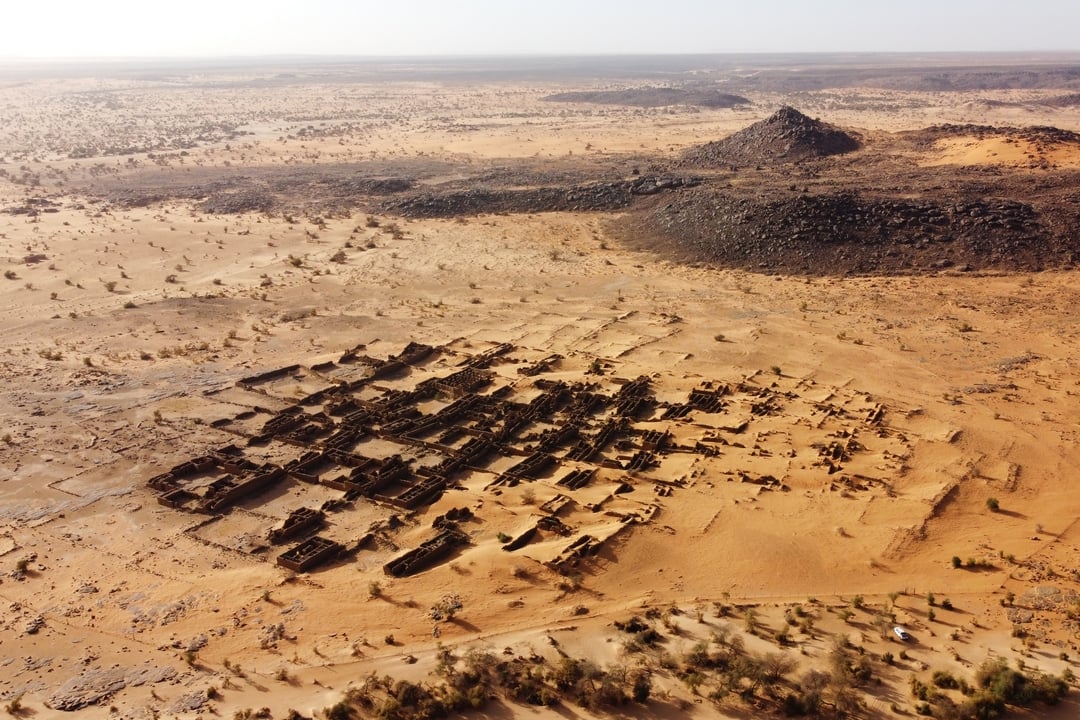
This city proved to be of great heritage interest due to the diversity and the number of manuscripts identified and listed among the nationals of this almost forgotten town.
Ksar El Barka occupies a remarkable site, on the north bank of the Oued el Abiod, a major tributary of Lake Gabou, a vast depression where a large part of the surface waters of the Tagant come together.
The village is placed on one of the passes of the Tagant plateau , on the caravan route from Morocco, the Mediterranean and the Atlantic to Walata and Mali, passing through Adrar in the North and Tichit in the ‘East.
This situation explains, it seems, the existence of the city and its former prosperity, it also suggests that the place was occupied from a very ancient time as evidenced by the many Neolithic sites, and the many cave paintings observable around.
But also the ruins that remain on the nearby rocky hills, those of Anekch al Akhall and Anekch al Abyadh, to the east of the previous ones, all located about 5 km south of the town.
Along the wadi, the development of agricultural land and the importance of the palm groves constituted the basis of the dynamism of this commercial city that the Saharan caravans frequented with regularity.
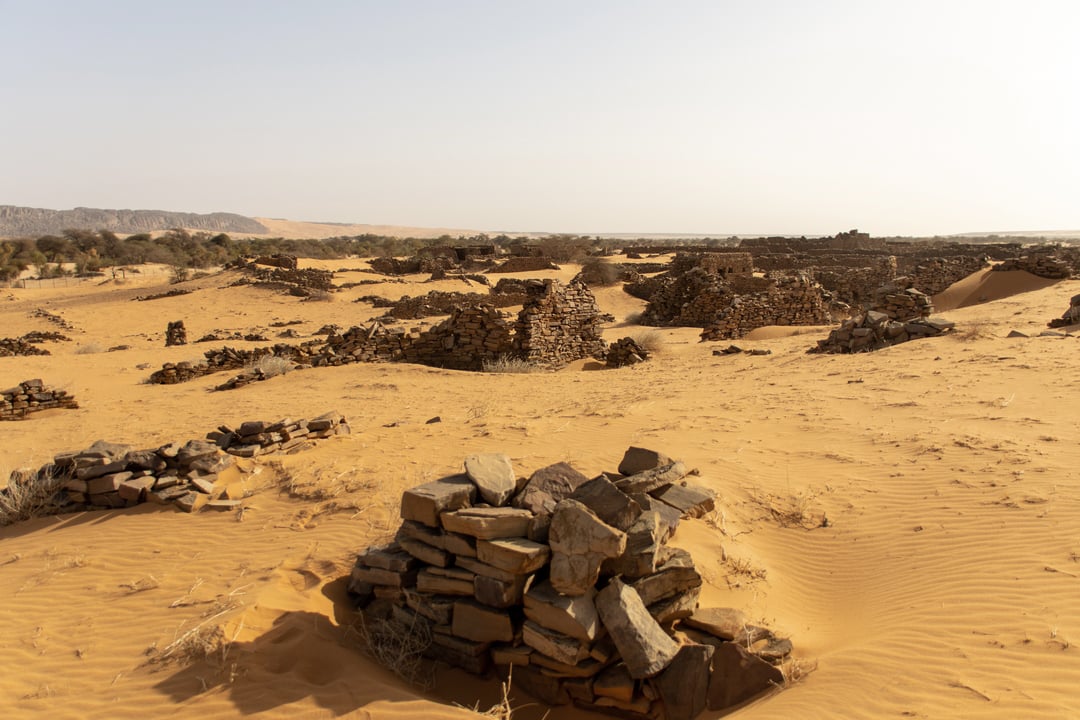
Ksar El Barka was also a center of cultural influence which housed poets, scholars and scholars . The prestigious medersas of Ahl Moulay Eli Ould Moulay Rchid, Ahl Chekh Ould Mmenny, Ahl Taleb Ebbat, Ahl Adoubba, Ahl Elghadhi, Ahl Khayne and many others spread wisdom and knowledge there.
But the definitive sanctuary of Ksar El-Barka, intervened during the visit, of Cheikh Sid’el Moctar El Kounti, distinguished figure and outstanding scholar, illustrious refounder of the Quadirya Way, who came from Azawad to glorify the Ksar, in 1753.
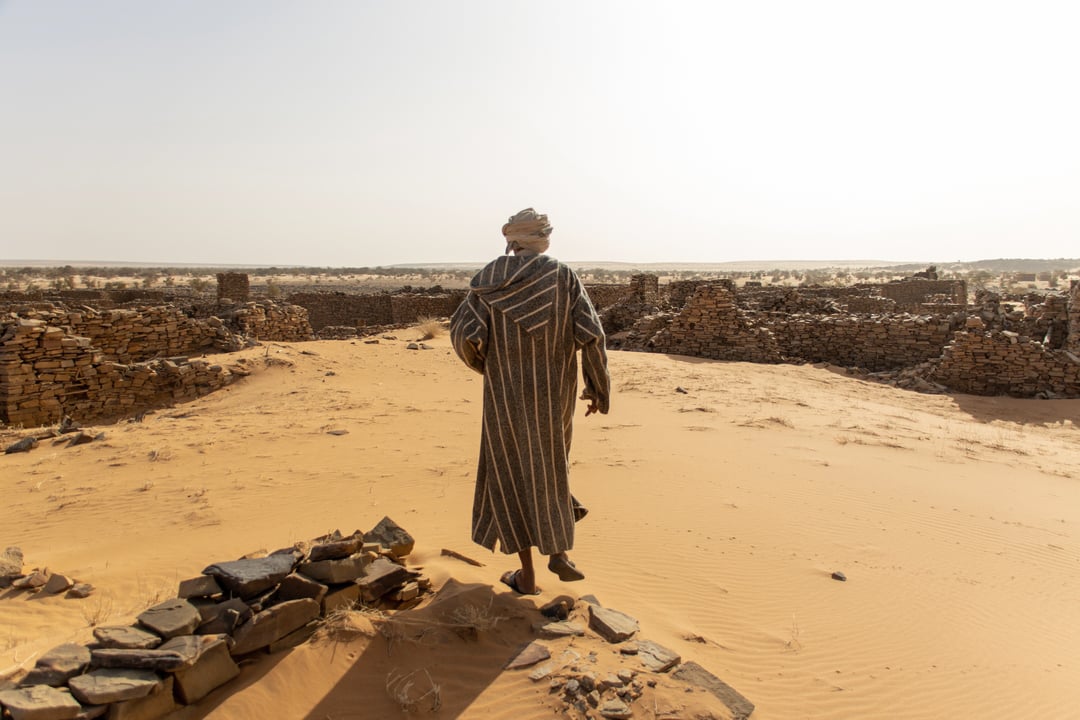
From 1820, the war which opposed the Kunta to the Ahl Sidi Mahmoud and the Ahl Mohamed Cheïne, resulted in 1822-1823 in the destruction of Ksar el Barka and Rachid (near palm grove founded by the Kunta in 1723), an episode unfortunately followed of a smallpox epidemic throughout Tagant.
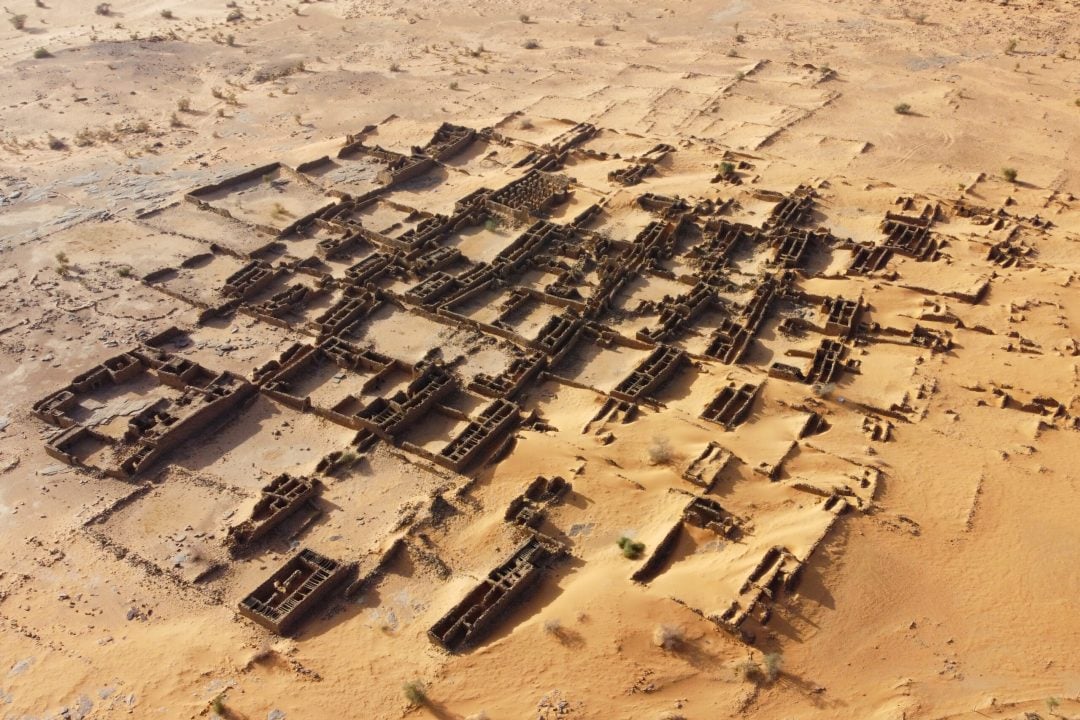
Later, in 1892-1893, Ksar el Barla was the scene of a fight which opposed the Kunta to the Zenaga (Idaw’ish) who, defeated, lost 17 notables of the Ahl Mohamad Cheïne.
However, the various destructions were fairly quickly followed by the (at least partial) reconstruction of the Ksar by its inhabitants.
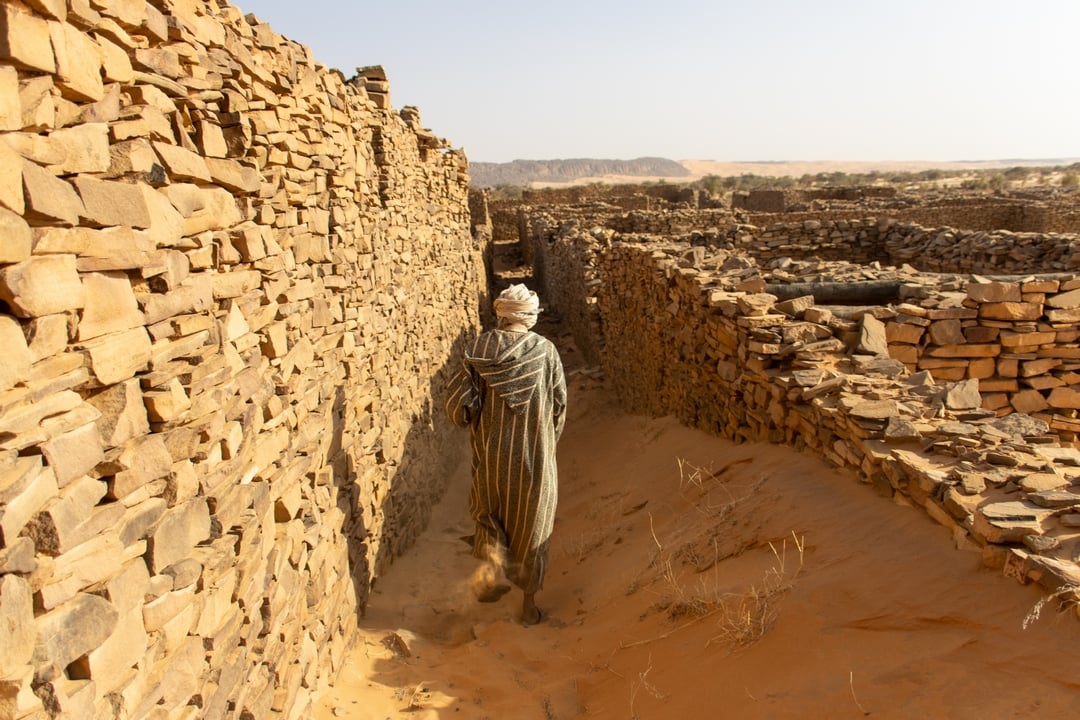
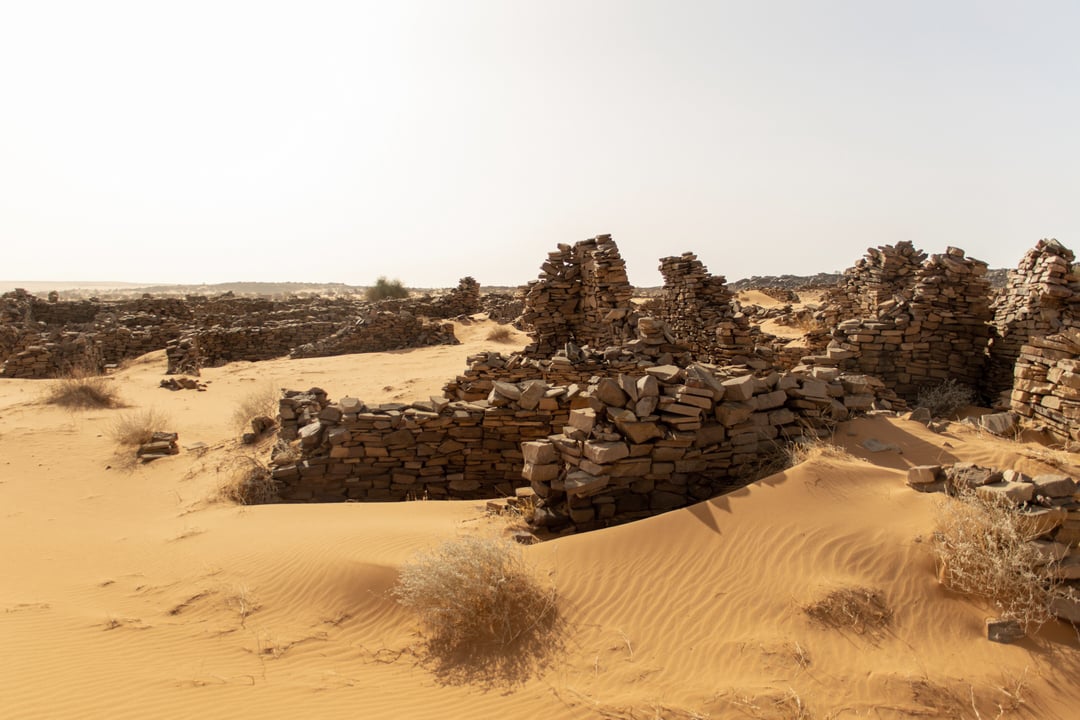
In February 1905, the French occupying forces, under the orders of the General Delegate of the Colonial Administration, Xavier Coppolani, occupied Ksar El-Barka, and built there a fortified building serving as a grain reservoir intended for the supply of French troops installed in Tidjikja.
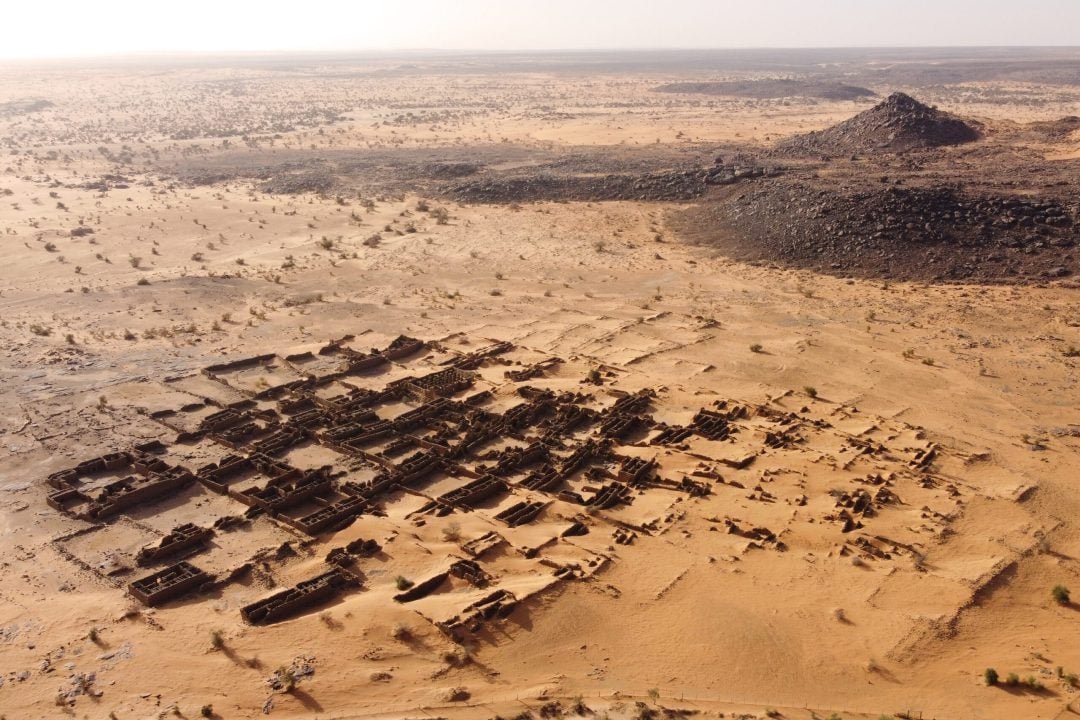
In 1914 the colonial administration accepted an old wish of the then tribal leader, Sid Mhammed Ould, to rebuild the mosque. In a wave of excitement, residents restored and rebuilt hundreds of apartments.
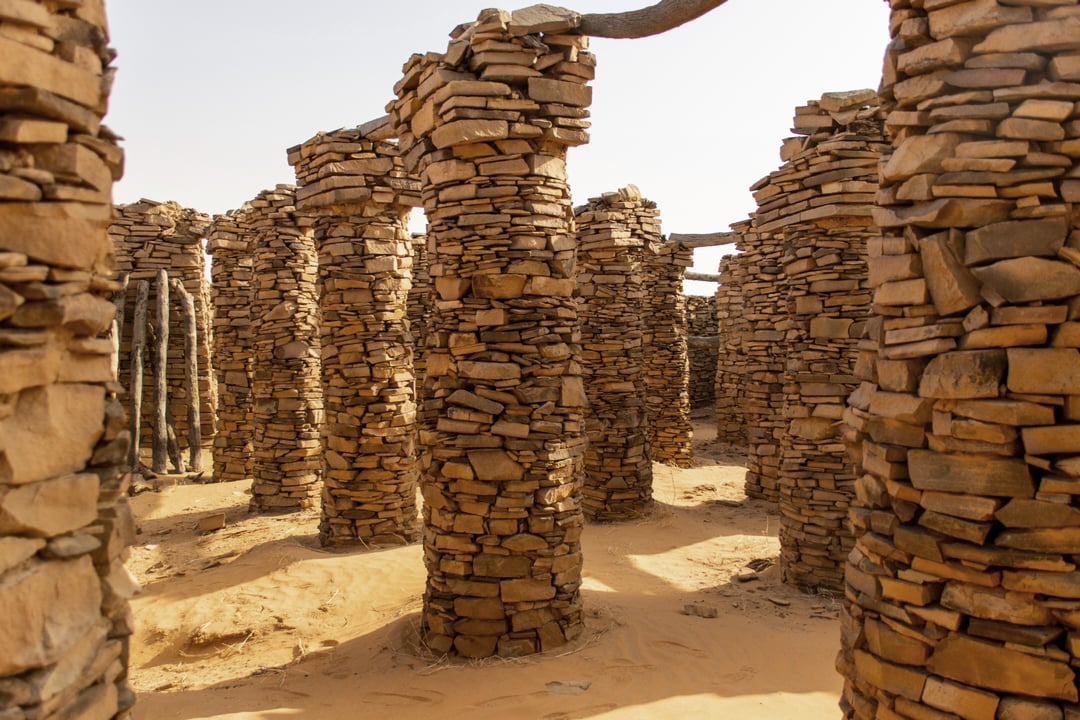
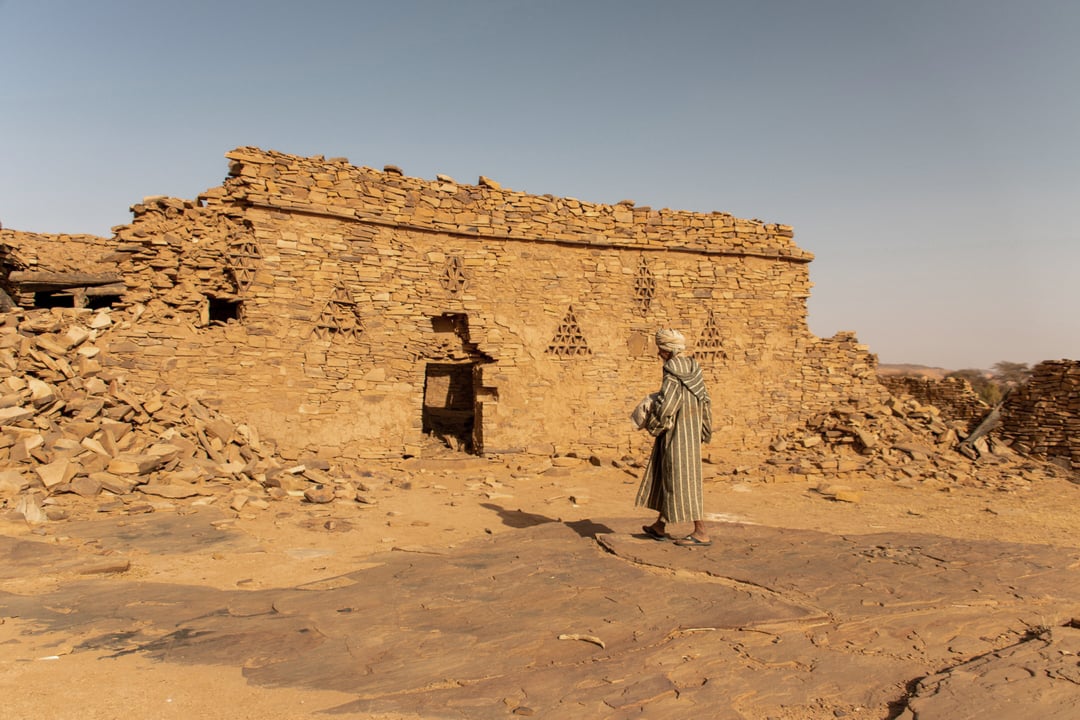
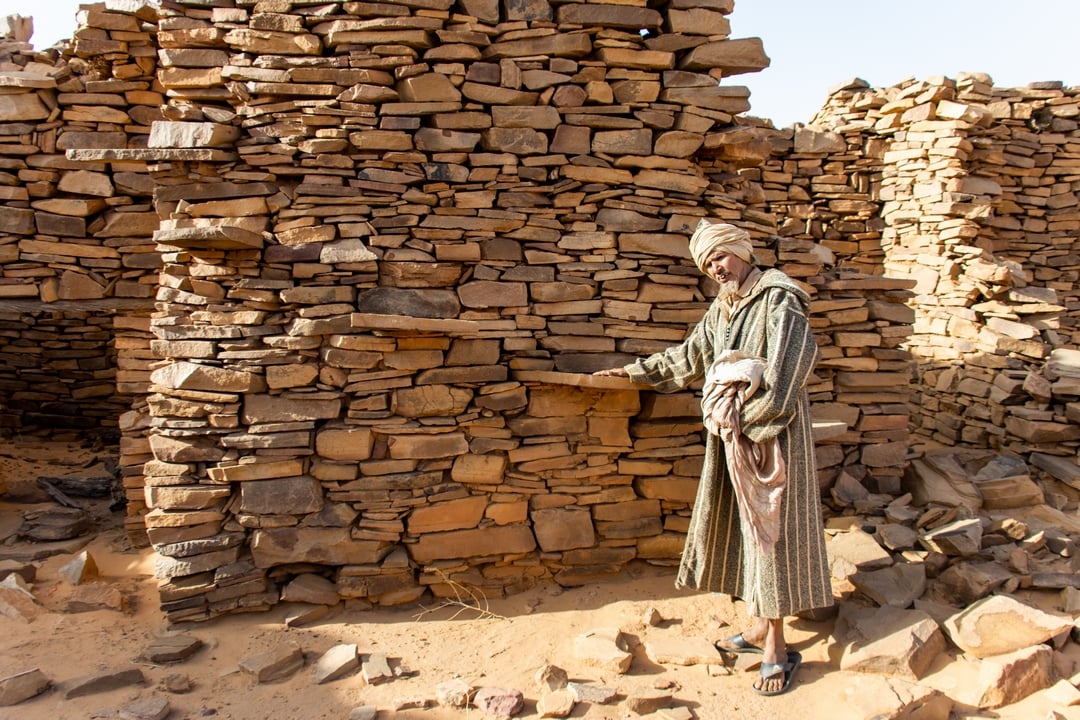
In reality the city had to be completely rebuilt and inhabited, but the change in trade routes and transport options meant that the foundations for civilization were lacking. More and more residents have emigrated, bringing the city to a state of total abandonment.
Today Kasr El Barka is a site of national archaeological interest.
